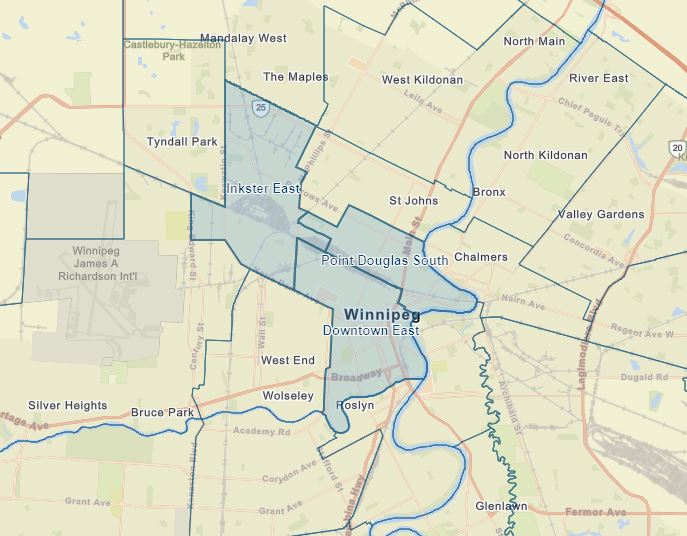Manitoba is expanding vaccination eligibility to everyone over the age of 18 living, and some working, in three Winnipeg neighbourhoods designated as COVID-19 hot spots.

In a release Friday the province said the priority communities include Downtown East, Point Douglas South, and Inkster East.
“These communities were selected based on an analysis of COVID-19 rates, population density, percentages of racialized populations, income levels and housing suitability in those areas,” said Dr. Joss Reimer, medical lead of the province’s vaccine Implementation task force.
“We encourage everyone eligible in these communities to make their appointment as soon as they can.”

Adults who don’t live in those areas but work there in certain jobs that deal with the public are also eligible. They include school workers, grocery store employees, convenience store clerks and restaurant staff.
More targeted geographic areas will be announced next week, Reimer said, and the list will include areas outside of Winnipeg.
The province says the expansion opens up shots for nearly 35,000 people living or working in the three Winnipeg areas.
Reimer said those eligible can now start making appointments at super sites and urban Indigenous vaccine clinics at Aboriginal Health and Wellness Centre, 180 Higgins Ave. and Ma Mawi Wi Chi Itata Centre – Win Gardner Place, 363 MacGregor Ave., both in Winnipeg.

More information, including a map highlighting the eligible neighbourhoods is available on the province’s website.
In other areas of the province, the age for vaccine eligibility remains at 30 and up for First Nations people and 40 and up for others.
The province also expanded its vaccine program this week to prioritize first responders, teachers and other front-line workers.

Get weekly health news
Health officials reported 181 new cases of the virus and two new deaths, including one linked with the B.1.1.7 strain, first identified in the United Kingdom, Friday.
The province reported its highest daily count since January –261 new cases — and one death linked to the virus Thursday.
According to provincial data there were 1,739 active COVID-19 infections across Manitoba as of Friday morning, including 499 active variant cases.
The vast majority of those cases — 915 — are in the Winnipeg area, followed by the Northern Health region, which had 463 active infections, according to the data.
The percentage of people testing positive has increased, as has the number of people in intensive care with COVID-19.
Reimer said the numbers show province is experiencing its third wave of the pandemic.
“We have been in this situation before, with rising case numbers of COVID-19. But this time, we have the vaccine,” she said.
“Please book your appointment as soon as you are eligible to help us slow the spread and get back to our lives sooner.”
–With files from The Canadian Press
Questions about COVID-19? Here are some things you need to know:
Symptoms can include fever, cough and difficulty breathing — very similar to a cold or flu. Some people can develop a more severe illness. People most at risk of this include older adults and people with severe chronic medical conditions like heart, lung or kidney disease. If you develop symptoms, contact public health authorities.
To prevent the virus from spreading, experts recommend frequent handwashing and coughing into your sleeve. They also recommend minimizing contact with others, staying home as much as possible and maintaining a distance of two metres from other people if you go out. In situations where you can’t keep a safe distance from others, public health officials recommend the use of a non-medical face mask or covering to prevent spreading the respiratory droplets that can carry the virus. In some provinces and municipalities across the country, masks or face coverings are now mandatory in indoor public spaces.
For full COVID-19 coverage from Global News, visit our coronavirus page.








Comments
Want to discuss? Please read our Commenting Policy first.